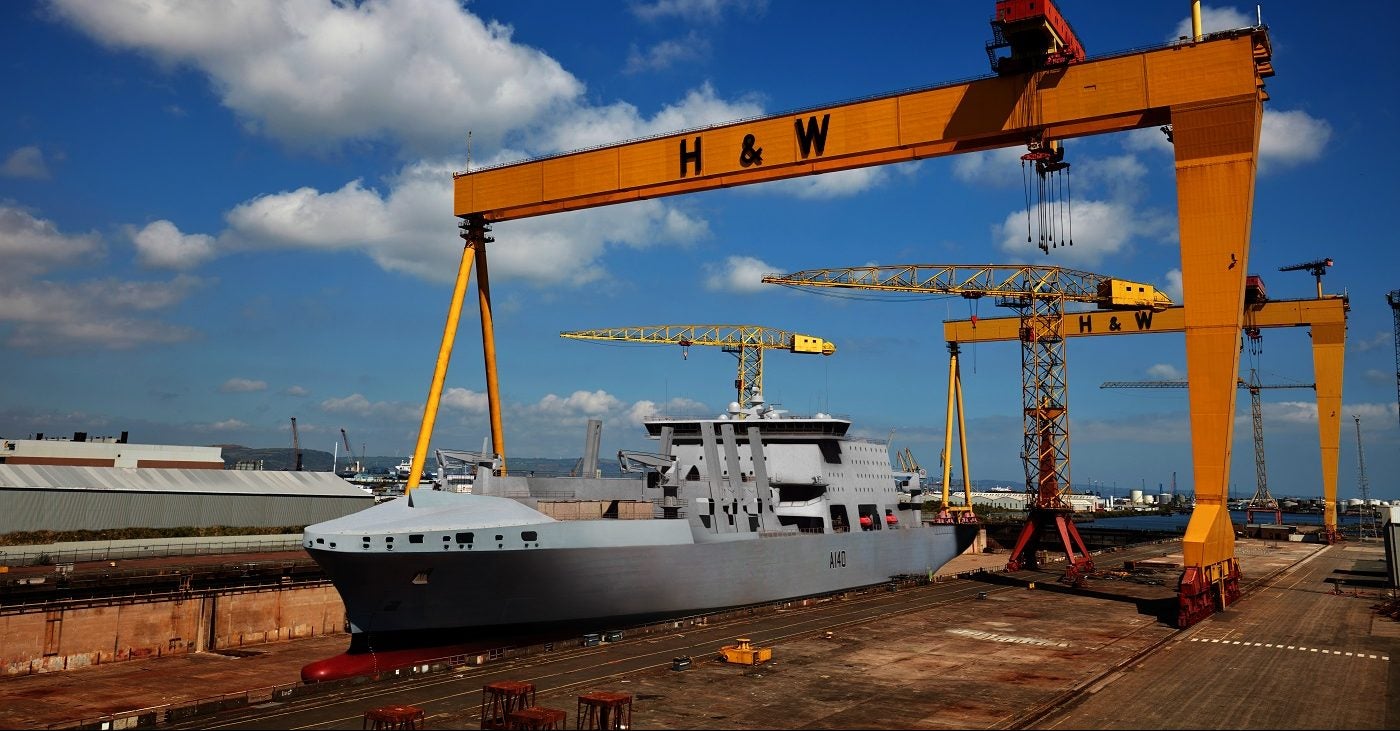
The three ships are vital to the UK’s plans for Carrier Strike groups and will keep the UK’s two new aircraft carriers, and other ships stocked with supplies while at sea.
A competition for the tender of the ships will be launched in Spring 2021, with the Ministry of Defence (MOD) saying the programme will ‘help revitalise’ British Shipbuilding by requiring that a ‘significant’ proportion of the vessels are built and assembled in the UK.

Discover B2B Marketing That Performs
Combine business intelligence and editorial excellence to reach engaged professionals across 36 leading media platforms.
Defence Secretary Ben Wallace said: “Shipbuilding has historically been a British success story, and I am determined to revitalise this amazing industry as part of this government’s commitment to build back better.
“The Fleet Solid Support warships competition will be the genesis of a great UK shipbuilding industry, and allow us to develop the skills and expertise for the shipyards of tomorrow.”
Under the competition, international shipbuilders are invited to collaborate with UK companies, but a British firm must lead the successful bid.
The announcement follows an earlier signal from Wallace that at least a significant proportion of the work would be undertaken in the UK after the Defence Secretary referred to the ships as ‘warships’ during defence questions in Parliament.

US Tariffs are shifting - will you react or anticipate?
Don’t let policy changes catch you off guard. Stay proactive with real-time data and expert analysis.
By GlobalDataThe Ministry of Defence (MOD) had in the past refused to call the vessels warships, which allowed for the vessels to be built overseas similar to the procurement of the UK’s Military Afloat Reach and Sustainability (MARS) Tide-class tankers.
The contract for the three ships is worth an estimated £1.5bn for the three vessels and has been the subject of a campaign from Unions to ensure work on the vessels goes to UK shipyards.
Confederation of Shipbuilding and Engineering Unions (CSEU) General Secretary Ian Waddell said: “There seems to be an incremental shift towards building these ships in Britain which is to be welcomed.
“However, the Defence Secretary’s comments yesterday pose as many questions as they answer on what will be a ‘significant proportion’ of work for the UK. This is open to interpretation and lacks clarity.”
The MOD said that the decision to ensure the winning bid is led a British company would create hundreds of highly skilled jobs. Today’s announcement follows a ‘period of market engagement’ and a ‘clearer understanding of how the strike group will operate’ which the MOD added would allow it to consider a broader range of designs for the Fleet Solid Support Ships.
The future competition is also to set targets to ensure the vessels are delivered ‘on time and at pace’.
Procurement of the Fleet Solid Support Ships was suspended last year after the MOD said none of the bidders could comply with cost requirements. Last month, the MOD issued a ‘prior information notice’ for the ship’s procurement which re-floated concerns work on the ships could be sent abroad.
Industry teams interested in the Fleet Solid Support Ship work include a UK consortium of Babcock, BAE Systems, Cammell Laird and Rolls-Royce, which bid for the original contract and is backed by the trade union-affiliated Keep Britain Afloat campaign.
‘Team Resolute’ – a Navantia, Infrastrata and BMT team – have agreed to partner on the work should a contract be awarded to the consortium. Infrastrata owns the Harland and Wolff shipyard in Belfast and recently announced it had acquired the historic Appledore Shipyard as well.
Waddell added: “It is vital that the Government don’t lose sight of the strategic importance of the FSS as a bridge from the end of the aircraft carrier to the 30-year build programme set out the national shipbuilding strategy.
“This will maintain our skills levels and guarantee jobs and regional prosperity for a generation as well as our ability to design, build and maintain warships.
“Too much dither and dilution of the contract and the pursuit of competition as an end rather than a means could be hugely damaging for the industry and our sovereign capability.”
The Fleet Solid Support Ship contract is set to build on the success of the Royal Navy’s Type 31 Frigate programme, the ships are being built in Scotland by Babcock and are based on the in-service Danish Iver-Hudtfelt class of vessels. Using an existing design has allowed the programme to cut costs and meet an ambitious cost of £250m per ship.
The MOD said that the Fleet Solid Support Ships would incorporate ‘next-generation technology’ and use a ‘purpose-built design’.
HMS Queen Elizabeth is set to embark on its maiden operational deployment in 2021.



